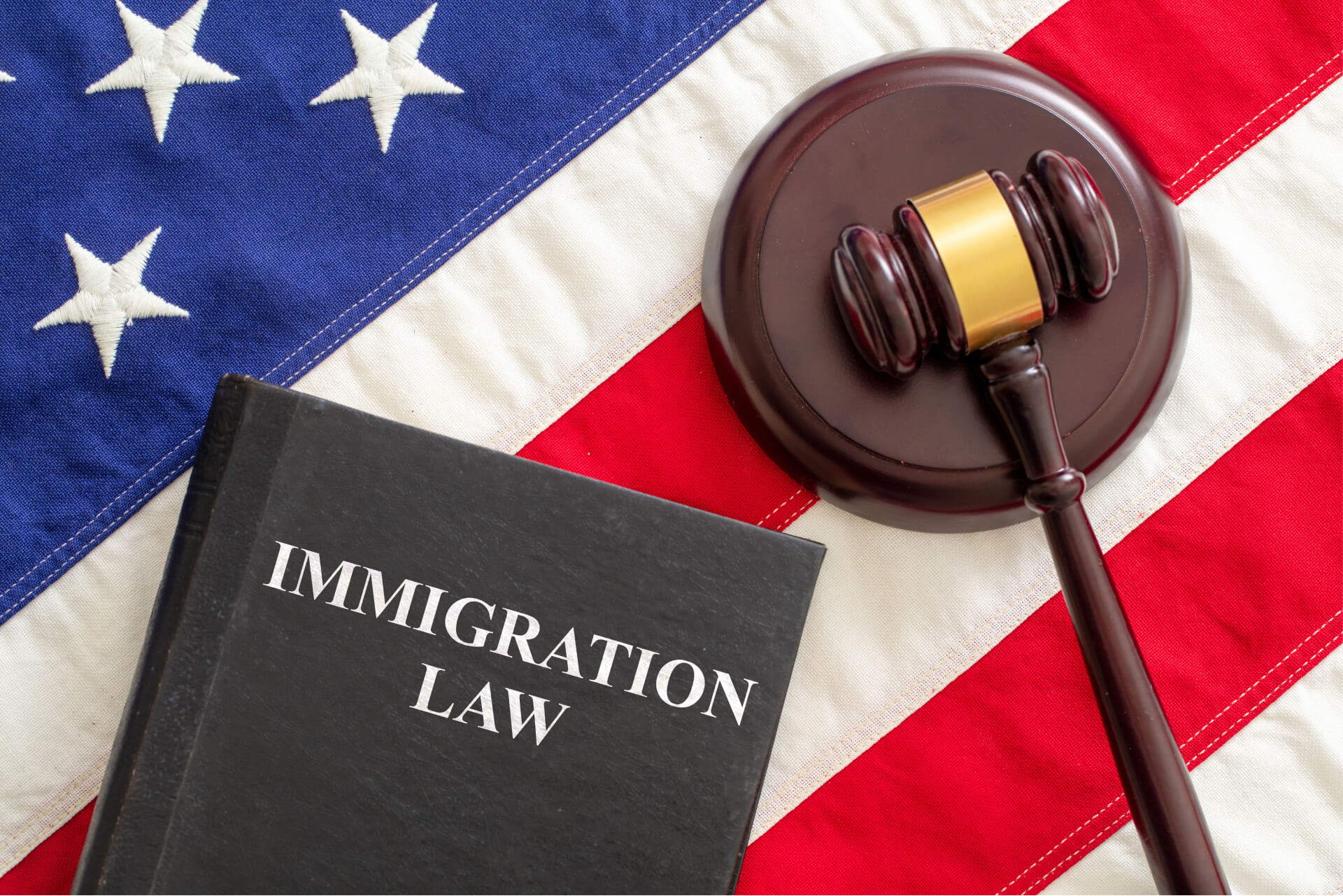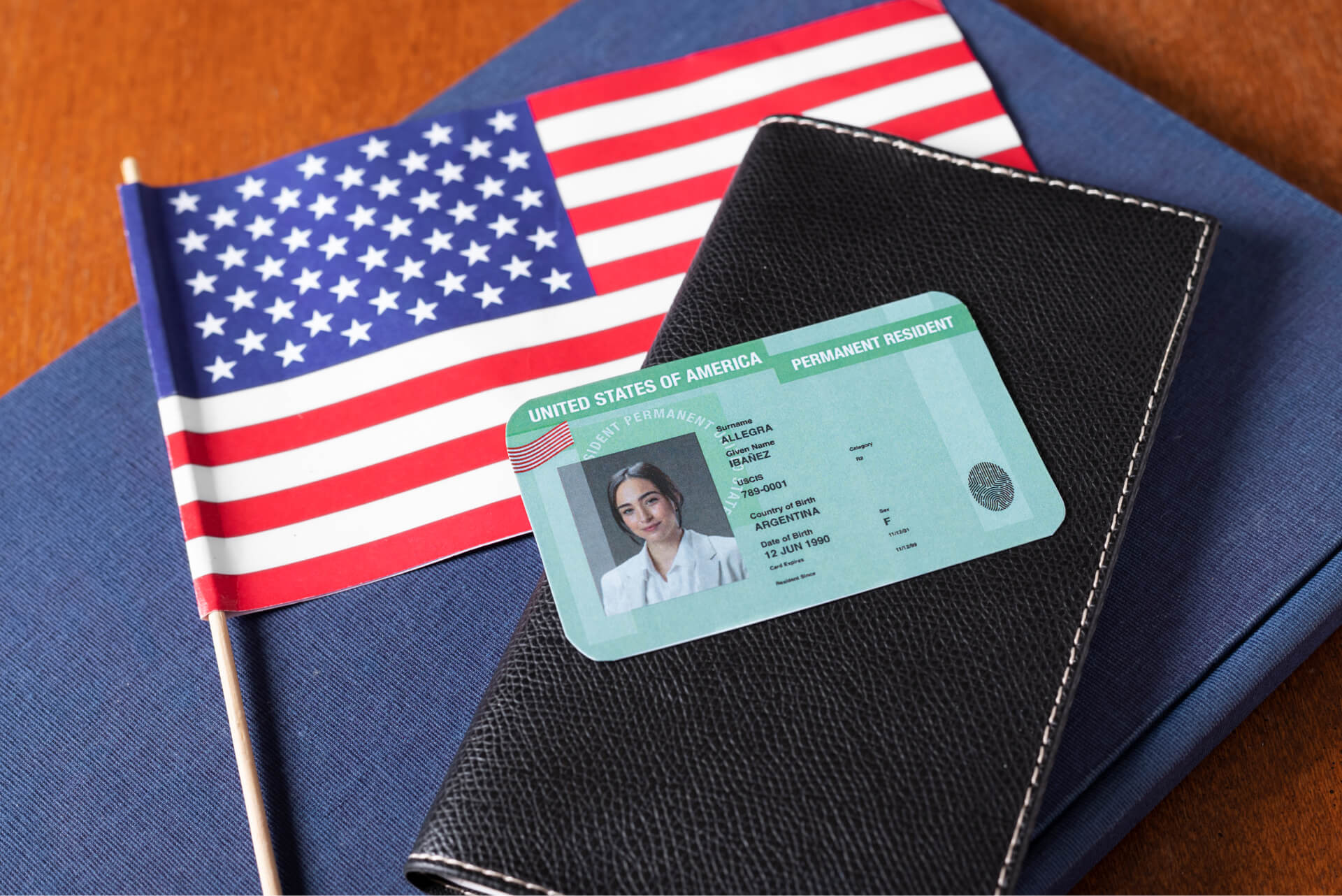The Difference Between Adjustment of Status and Immigrant Visa
Both Adjustment of Status and an Immigrant Visa are paths to a Green Card, however, one process will be better suited to certain people than the other.
There are two primary paths for obtaining a green card in the United States. One path is through adjustment of status and the other is by obtaining an immigrant visa though the process of consular processing. Adjustment of Status could be the option used by someone who is already in the United States on a non-immigrant visa to adjust their status without having to return to their country of origin. Whereas, consular processing could be used by someone who is considering immigrating to the United States, but is still currently overseas.
How does to Submit an entry for Immigrant Visa?
While both methods can ultimately result in the acquisition of a green card, the two methods have different processes and requirements. Let’s look more closely at the similarities and differences between each process.
Understanding Consular Processing
As stated before, the Immigration and Nationality Act (INA) provides two main paths to achieve permanent resident status (a Green Card). Someone who has an approved immigrant petition and has a readily available immigrant visa number can apply overseas at a United States Department of State consulate for an immigrant visa that will allow them to travel to, and be admitted into the U.S. as a permanent resident. This method is known as consular processing.
To begin the process of consular processing, you should decide if you meet the requirements for a specific immigrant category. The majority of immigrants will become eligible for their green card by way of a petition filed by a relative or employer on their behalf. Other immigrants may begin as refugees or asylees before becoming permanent residents. If you do not meet the requirements for either of these categories, there are still a number of other provisions that could help you get your green card.
Once you have determined the most appropriate category for your situation, the next step is to file the immigrant petition. In nearly all of these cases, you must have an immigrant visa petition filed for you:
- Family Based. For these categories, a family member who is a U.S. citizen or lawful permanent resident must file a Form I-130 on your behalf.
- Employment Based. Most of these categories require that your potential U.S. employer file a Form I-140, Petition for Alien Worker on your behalf. If however, you are an entrepreneur who is planning to invest a substantial amount of money into a business endeavor in the United States, you can file a Form I-526, Immigrant Petition by Alien Entrepreneur for yourself.
- Special Immigrants. Certain classes of immigrants can file a Form I-360, Petition for Amerasian, Widow(er), and Special Immigrant for themselves, or have someone file one on their behalf.
- Humanitarian Programs. Although a petition is not necessary for most humanitarian programs, individuals may be obliged to meet certain requirements prior to adjustment of status.
Complete your immigration paperwork using our online software. We make it easy!
Complete your immigration paperwork using our online software. We make it easy!

Additionally, while immigrant petitions are filed with USCIS, sometimes an I-130 petition can be filed for an immediate family member, including a spouse, a child, or the parent of a U.S. citizen, at a United States embassy or consulate overseas. This could happen in the following situations:
- When the United States citizen has been approved to be residing continuously for a minimum of the past 6 months in the jurisdiction of the consulate;
- For military members;
- If the well-being of the petitioner is at stake;
- Emergency situations;
- If the national interests of the U.S. are at stake.
As always, it is prudent to check the USCIS website or an immigration attorney before submitting any of these forms.
Next, you will wait for the USCIS to notify the petitioner about their decision. A denial will include the reasons for the denial and any pertinent information about appealing the decision. If USCIS approves the petition and you are the beneficiary of the petition, regardless of whether you live inside or outside the United States, but decide to apply for your immigrant visa while overseas, USCIS will forward the approved petition to the Department of State’s National Visa Center. The petition will stay there until an immigrant visa number becomes available. When a number becomes available will depend on the USCIS Priority Date calendar.
The petitioner and beneficiary will then wait to hear from the National Visa Center once, when they receive the petition, and again, when the immigrant visa number will soon be available. The NVC is also responsible for collecting visa application fees and supporting documentation. They will keep the petitioner and beneficiary informed about when to submit the processing fees and supporting documentation.
The consular office will then schedule an interview time for the applicant when the visa is available or the beneficiary’s priority date is current. At this interview, the consular office will finish processing the applicant’s case and determine if the beneficiary is entitled to an immigrant visa.
Although the NVC will contact you about pertinent information, there is no need for you to contact them unless your address changes, or anything about your personal situation changes that could affect your visa eligibility, including changes in your marital status or turning 21 for a child.
Once you are given an immigrant visa, you will receive a “Visa Packet” from the consular office. DO NOT open the packet. Instead, you will hand over your packet to a Customs and Border Protection officer at your port of entry. If the officer determines you to be admissible, you will be allowed to enter the United States as a permanent resident, where you will now have the right to live and work permanently.
You should receive your green card by mail within 45 days of your arrival.

Understanding Adjustment of Status
The alternative path to a green card is through the process of “adjustment of status.” The INA allows an immigrant to change their immigration status while they are already in the United States from a non-immigrant or parolee, to immigrant or permanent. To qualify for this status change, you must have been inspected and admitted (or paroled) into the U.S. and you must meet all the qualifications in any one category for obtaining a green card, or permanent residence.
To begin the process for adjustment of status, you should first determine if you meet the qualifications for a specific immigrant category. The majority of immigrants become eligible for permanent residence, or their green card, because a relative or an employer files a petition on their behalf. Others may eventually get their green cards by obtaining refugee or asylum status first. There are also several other special provisions that offer opportunities for a green card.
When you have determined the category that most accurately matches your situation, you will, in most cases, need an immigrant petition filed on your behalf. The main immigrant categories include:
- Family Based. If you fit into this category, you will need a family member who is a U.S. citizen or lawful permanent resident to file a Form I-130, Petition for Alien Relative on your behalf.
- Employment Based. Most of the employment based immigrant categories require that the potential U.S. employer file a Form I-140, Petition for Alien Worker on your behalf. If, however, you are an entrepreneur who is planning to invest a substantial sum of money into a business endeavor in the U.S., you can file Form I-526, Immigrant Petition by Alien Entrepreneur for yourself.
- Special Immigrants. Some special immigrants could be eligible to file a Form I-360, Petition for Amerasian, Widow(er), and Special Immigrant for themselves or have one filed on their behalf.
- Humanitarian Programs. While an existing petition is not necessary for the majority of humanitarian programs, there are other requirements that applicants might have to meet prior to qualifying for adjustment of status.
Through a process known as “concurrent filing,” you could be eligible to file your Form I-485, Application to Register Permanent Residence or Adjust Status at the same time the petition is filed for you. The category you want to adjust under will determine if you can file concurrently. Immediate family members and certain other classes of people who have an immediately-available visa may be able to file concurrently. The majority of categories, however, will require you to establish your eligibility for the immigrant category by receiving an approved petition prior to filing Form I-485.
After you determine the appropriate immigrant category for your situation, you must check visa availability. Until a visa in your category is available, you will not be allowed to file your Form I-485. When an immigrant visa is available to you, you could be eligible to apply for permanent residence status with Form I-485.
Form I-485 is the form to be filed to apply for permanent residence, regardless of whether it can be filed concurrently or must be filed after a petition is approved for you.
When preparing your Form I-485, you must follow the instructions exactly and submit all the necessary documentation and proof required for your category. If you fail to do so, your application process could be dramatically delayed or even denied for failing to establish your eligibility to adjust status.

Once you have filed your application, you will receive a notice to attend an appointment for the collection biometrics. Typically, this involves being fingerprinted and having your signature and photograph taken. USCIS will use this information to perform the required security checks and then later, to create your green card, employment authorization card, or advance parole document.
After your biometrics appointment, you will be given a time, date, and location to interview at a USCIS office, if an interview is necessary. There, you will be interviewed, under oath, about the information on your application. At your interview, you and the relative who filed the Form I-130 petition for you (if applicable), should be prepared to show originals of all the documents submitted with your application including passports, Form I-94, and all travel documents, even if they have expired.
Not every application requires an interview. Officials at USCIS will review your case to decide if one is necessary for yours. However, it is imperative that you attend any and all interviews scheduled for you.
After your interview has been conducted (if you had one), all the paperwork has been processed, and security checks have been completed, USCIS will be ready to make a determination regarding your case. Regardless of the outcome, you will be informed in writing. Additionally, if your application was denied, you will be given the information necessary to appeal the decision.
Complete your immigration paperwork using our online software. We make it easy!
Complete your immigration paperwork using our online software. We make it easy!
Share this post
Read also
Be aware of any changes in US immigration policy
Our robot will always keep you posted on the Facebook

Usimmigrationforms.com is not a law firm. We do not provide legal advise or opinion to our customers. If you have a complicated case or need to receive a legal advise please consult with an experienced immigration attorney.
Immigration Advocacy Service
Immigration Advocacy Service
With our Attorney Application Review option, you can choose to have an experienced immigration attorney review your application and correct any mistakes.
With our Attorney Application Review option, you can choose to have an experienced immigration attorney review your application and correct any mistakes.
Popular services
Popular services
Category
Category
1
646-838-3958 info@usimmigrationforms.com
646-838-3958
info@usimmigrationforms.com
160 Broadway 4th floor New York NY 10038
160 Broadway 4th floor
New York NY 10038
Follow us
Follow us
Receive the latest news
Receive the latest news
TERMS AND CONDITIONS | PRIVACY U.S. immigration forms is not affiliated with the USCIS or any government agency. We are not a law firm, do not provide legal advice, and are not a substitute for the advice of an attorney. Customer support is for technical and billing issues only, and will not answer legal questions. Some forms that can be completed online using our service are available and come with written instructions for free from the USCIS. U.S. immigration forms purchase price does not include any government application, biometric or filing fees. Access to and use of the usimmigrationforms.com website, as well as all cancellation, termination or refund/return policies, are subject to U.S. immigration forms Terms of Use and Privacy Policy. The “U.S. immigration forms” mark and U.S. immigration forms logo are service marks registered with the United States Patent and Trademark Office under the laws of the United States of America.
0 Comments